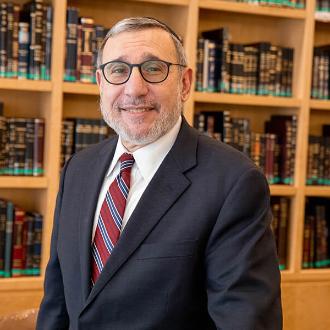Moshe Sokol
Dean
The Graduate School of Jewish Studies is led by Dean Moshe Sokol, who holds a Ph.D. from the University of Pennsylvania, where he was a Thyssen Foundation Research Fellow, and received semicha from the Israel Torah Research Institute (ITRI) in Jerusalem after seven years of post-high school studies in yeshivos in Philadelphia, New York and Israel. He has taught at the University of Pennsylvania, New York University, and Touro University graduate and undergraduate schools. Dean Sokol has served Touro University in various administrative capacities, including founding and directing the Graduate School of Jewish Studies and a collaborative medical program with the Technion in Israel. He has also served as Senior Program Officer at the Memorial Foundation for Jewish Culture, where he traveled around the world organizing seminars and educational programs.
Widely recognized in his field, Dean Sokol, who holds the rank of full professor, has written or edited four books and published some two dozen articles on ethics and Jewish Studies in major British, American and Israeli journals, and lectured at conferences around the world.
Publications
- M Sokol. "A Mysterious Guest for Dinner". Maggid Press/Koren, 2024
- M Sokol. "Some Tensions in the Jewish Attitude Toward the Taking of Human Life: A Philosophical Analysis of Justified Homicide in Jewish Legal and Aggadic Literature." Jewish Law Annual (Vol 7), 97-113, 2021
- M Sokol. "The Snake at the Mouth of the Cave: Exploring Talmudic Narratives." Maggid Press/Koren, 2021
- M Sokol. "Portrait of a Rabbinic Dissident: Akavya Ben Mehalalel Confronts the Judicial Establishment." Touro L. Rev. 36, 251, 2020
- M Sokol. "Judaism Examined: Essays in Jewish Philosophy and Ethics." Academic Studies Press, 2019
- M Sokol. "Transcending Time: Elements of Romanticism in the Thought of Rabbi Joseph B. Soloveitchk." Modern Judaism 30 (3), 233-246, 2010
- M Sokol. "Maimonides on Joy." Judaism Examined: Essays in Jewish Philosophy and Ethics, 12-29, 2009
- M Sokol. "Is There a “Halakhic” Response to the Problem of Evil." Jewish Studies in Violence, 227-238, 2007


